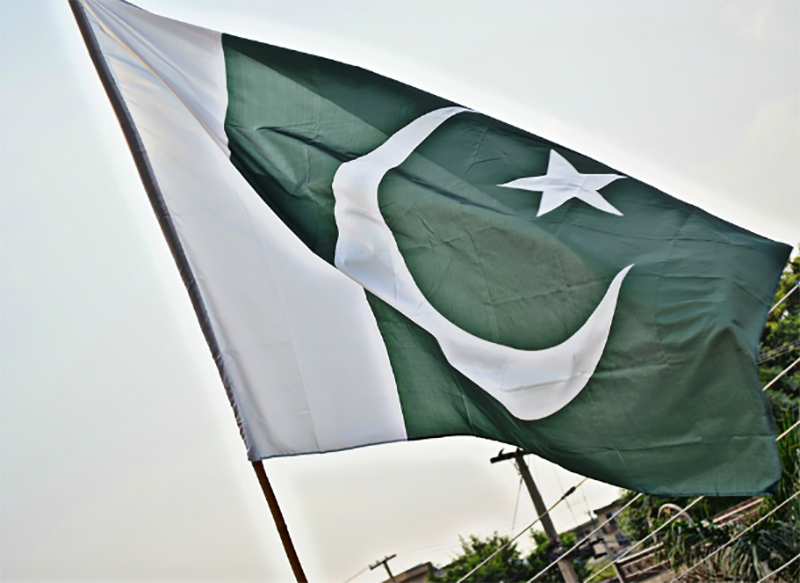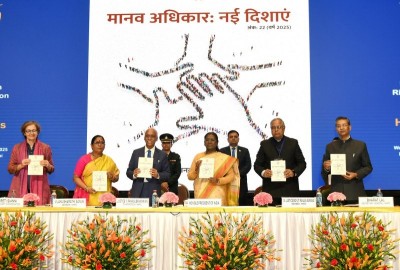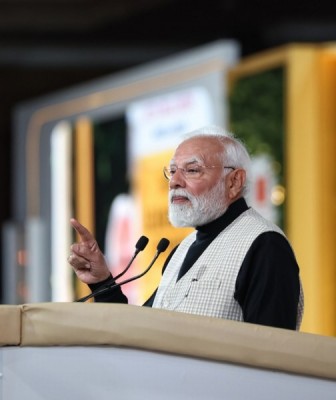 Pakistan
Pakistan
Security, aid, elections and traditional institutional interests: The challenges facing Pakistan’s new Army Chief
Last week marked the formal taking charge of Pakistan’s 17th Chief of Army Staff (COAS), four-star General Asim Munir, who replaced the now-retired Qamar Javed Bajwa as head of the Pakistani Army. Munir has become COAS at a time when Pakistan faces various political challenges, ranging from the escalating insurgency of the Pakistani Taliban (Tehreek-e-Taliban Pakistan - TTP) along the border with Afghanistan, continued loan negotiations with the International Monetary Fund (IMF), economic downturn, the political standoff between the Sharif government and Imran Khan-led opposition, and the prevailing humanitarian response issues linked to the floods of the summer.
The appointment of the new COAS, widely considered to be the de facto most powerful figure in Pakistan, had been the subject of intensified politicking over the past months. The appointment of the new COAS had dominated the domestic media landscape despite the severe economic and humanitarian crises transpiring in large parts of Pakistan throughout 2022, with Munir’s appointment bringing an end to a three-year long guessing game as to who would take the Army’s top spot.
Debates surrounding the new COAS also played a key role in the ousting of Imran Khan of the Pakistan Tehreek-e-Insaf (PTI) and the emergence of a coalition government led by Shehbaz Sharif, brother of former Premier Nawaz Sharif. The no-confidence vote propelled by Sharif was crucially linked to the candidate Khan had favored to take over as COAS following Bajwa’s designated retirement in late 2022.
While initially receiving political support from Bajwa and the Army, Khan’s relationship with Bajwa had deteriorated throughout his Premiership due to differences on policy and especially Khan’s increasingly confrontational rhetoric towards the United States.
Khan had aimed to appoint Faiz Hameed, former Director of the Pakistani Inter-Services Intelligence (ISI), as new COAS, an appointment that would have furthered Khan’s grip on power. Upon further pushback and decreasing political support from benefactors in the military establishment that ultimately enabled the no-confidence vote, Khan went on to accuse Bajwa of permitting interference from the United States to remove him from office.
Since his ouster and the election of Sharif, Khan has demanded snap elections and announced Mao-style ‘long marches’ to Islamabad. The support Sharif’s government has received from the military establishment has further alienated the PTI’s political base, especially in urban centers. PTI protests in cities throughout Pakistan openly criticized the Army and disrupted Army infrastructure – an extremely unusual occurrence in a country in which the Army continues to play an outsized economic, political, and social function. In his new role, Munir now faces a domestic political environment that is unprecedentedly critical of the Army’s role in Pakistani politics.
Sharif’s choice of Munir as COAS marks an attempt to ensure continuity and stability in an increasingly unstable domestic political environment. Munir is known to be a pious Muslim, playing to the Army’s self-created image as an institutionalized defender of the Islamic faith. Crucially, he is a long-standing confidante of Bajwa, under whom he served as a brigadier in the Force Command Northern Areas. Concerning Munir, as reported by the reputed Pakistani newspaper The Dawn, Bajwa suggested that “In addition to being a Hafiz-i-Quran (someone who has completely memorized the Quran), he is a professional, capable and principled officer. I am certain that under his leadership the army will reach new heights of success”. Munir served as head of the Army’s military intelligence in 2017 before being appointed as Director of the ISI in 2018. Munir’s stint as head of the ISI turned out to be shortest in the ISI’s history, with Munir being replaced by Hameed on the insistence of then-Premier Khan. Munir's appointment by Sharif therefore installs not just a key ally of Sharif but also a key opponent of Khan. In the past, however, close initial ties between the Premier and the COAS have not necessarily guaranteed policy alignment. Although it had been Nawaz Sharif who had made Pervez Musharraf COAS in 1998, Musharraf showed no qualms in disposing Nawaz just a year later, establishing himself as President. Zulfiqar Ali Bhutto, arguably the most popular Pakistani politician next to Jinnah, had met an even more horrendous fate when he was deposed and subsequently hanged by Zia-ul-Haq, whom he had appointed Chief of the Army superseding as many as seven senior officers.
Munir’s proximity to Shehbaz Sharif, despite the formally apolitical position of the COAS, may prove crucial at a time when Khan seeks to rouse support for new elections. Munir’s link to Bajwa and the current government will furthermore challenge Bajwa’s pledge that the Army will not interfere in domestic politics going forward. While speaking to Samira Hussain of the BBC, the Army’s dualistic role and narrative was recently acknowledged by Fahd Husain, a Pakistani journalist and special adviser to Sharif - speaking of the COAS, Husain argued that "It's not a political position but if you look at the post, this position has had a political role".
One element of this overarching contest between Khan and Sharif is the increasing criticism of the Army in the Pakistani public. The Army has long portrayed itself as the sole stabilizing actor in Pakistan to both a domestic and international audience, justifying its continued involvement in and upholding of what has often been described as a hybrid regime. While Army interference is hardly a novel phenomenon in Pakistan, the degree of popular support for Khan and the (perceived) links between Sharif and the Army means that the Army now faces an unprecedented challenge to its sociopolitical legitimacy. Challenged legitimacy is, of course, not synonymous with the Army playing a less decisive role in Pakistani politics. However, it poses new challenges that Munir will have to carefully negotiate to not further propel anti-Army sentiment.
Munir also faces diverse security challenges. Insurgent groups in Balochistan have ramped up their attacks on Army personnel and infrastructure throughout 2022 while expanding their attacks against Chinese nationals and assets as part of their opposition to the China-Pakistan Economic Corridor (CPEC). Maintaining positive ties with Beijing to ensure access to financing and diplomatic support will be a key task for Munir. At the same time, Munir must administer existing and ensure access to future loans from the IMF and other international donors that are direly needed to compensate for the severe economic losses incurred by the fallout of the pandemic and the floods. Under Bajwa, the Army had also come to favor the revitalization of ties with Washington. In effect, Munir will have to walk a tightrope between ensuring continued Chinese investment in Pakistan while maintaining the tacitly improved trajectory in Islamabad’s security relationship with the US.
More pressingly, Munir will have to respond to the increasingly volatile security situation along the Afghanistan-Pakistan border. Instead of pacifying extremist groups operating in Pakistan, most notably the TTP, the return of the Taliban to power in Kabul in August 2021 has directly empowered and emboldened the TTP. Since the fall of Kabul, TTP attacks in Pakistan (especially in Khyber Pakhtunkhwa and the former Federally Administered Tribal Areas (FATA)) have increased by more than 50%. The assumption that a Taliban administration in Afghanistan would help to rein in the TTP has clearly been disappointed. The continued operations of the TTP, the TTP’s persistent basing in Afghanistan, and the lack of protection for civilians in the Pashtun belt has also motivated increasingly vocal popular opposition to the Army in Pashtun areas, for instance through the Pashtun Tahafuz Movement (PTM). Indeed, the security situation is likely to deteriorate further in the coming weeks and months: one day before Munir took office, the TTP announced a unilateral end to a months-long ceasefire agreement (which the TTP had only sparsely upheld). As the TTP grows in reach and the Taliban remains reluctant to constrain the TTP’s activities, terrorist violence along the Afghan border will remain the most prevalent security threat that Munir will have to develop a more effective response to.
The appointment of a new COAS invariably also produces ramifications for India. Despite the frequently hostile rhetoric, the last years have been characterized by relative stability between both countries, with Bajwa playing a key role in pushing for a ceasefire agreement over Jammu & Kashmir (J&K). For Indian policymakers, Munir’s appointment is likely to ring alarm bells as during his short stint as head of the ISI, the ISI-linked terrorist organization Jaish-e-Mohammed (JeM) perpetrated the Pulwama attack in Indian-administered J&K, killing 40 members of the Central Police Reserve Force. The attack led to Indian air raids on terrorist training camps in Pakistan and Pakistan-administered J&K and to a renewed deterioration in the bilateral security relationship. Concerns in New Delhi will undoubtedly focus on the potential for renewed terrorist violence in Indian-administered J&K.
Since taking office, Munir has also made use of hostile rhetoric towards India. During a visit to the Line of Control (LOC), Munir suggested that “Pakistan’s armed forces are ever ready, not only to defend every inch of our motherland, but to take the fight back to the enemy if ever war is imposed on us”, adding that the “Indian State will never be able to achieve her nefarious designs”. In a tweet, South Asia expert Michael Kugelman noted that “The sharp rhetoric on India was predictable as the new chief would want to set a strong tone” but that it was “still notable, given that public messaging on India was fairly subdued during the final period of Bajwa’s time as Army Chief”. Indeed, Munir’s initial messaging was hardly surprising given that the Army bases much of its legitimacy on its ability to balance and contain India. Pakistan’s recent removal from the grey list of the Financial Action Task Force, in combination with Islamabad’s ostensibly improved security ties with Washington, reflected in the American support for the sustainment program for US-produced F-16 fighter jets, has provided Munir with some space for pursuing a more openly belligerent rhetoric. The military has been de facto in charge of the country for nearly 75 years since the time Pakistan came into existence and the deep-rooted anti-India stand and inflexible hostility is not expected to change by merely the change of the Chief of the Army. The Army will also interpret a more pronounced anti-India stand as an answer to the erosion of the sheen of the Pakistani Military Establishment due to growing criticism at home. Sameer Patil from the Delhi-based Observer Research Foundation noted that Munir “may devise hawkish policies on national security matters in the near term” to ramp up the Army’s domestic legitimacy. Such policies would likely target India and could result in heightened instability between the two nuclear neighbors. The real and long-term benefits of this to the political and economic wellbeing of Pakistan, and to the cause of regional stability may be dubious, but consideration and preference by the Pakistan Army of its institutional interests will not allow a change in this situation.
Ultimately, Munir has taken over as COAS at an extremely crucial and volatile time for both Pakistan and the wider region. In-depth predictions and forecasts surrounding his policies or ambitions are likely to be inaccurate by default, with so much hinging on the broader developments on the civilian level of the government. The structural issues Pakistan continues to face, including economic malaise and mismanagement, inadequate humanitarian response capacities, and multifaceted and enduring security challenges, however, are unlikely to disappear any time soon.
It is also worth noting that the institutional interests of the Pakistani Army, namely the maintained domestic and international perception of the Army as the key stabilizer in Pakistan, are not contingent on the policies or ideology of any single individual. While Munir marks a degree of continuity to an extent, analysts will have to continuously account for how Pakistani politics and security are shaped by what former US Secretary of Defense Donald Rumsfeld famously called ‘known unknowns’ - “we know there are some things we do not know” and ‘unknown unknowns’ - “the ones we don’t know we don’t know”.
Support Our Journalism
We cannot do without you.. your contribution supports unbiased journalism
IBNS is not driven by any ism- not wokeism, not racism, not skewed secularism, not hyper right-wing or left liberal ideals, nor by any hardline religious beliefs or hyper nationalism. We want to serve you good old objective news, as they are. We do not judge or preach. We let people decide for themselves. We only try to present factual and well-sourced news.







